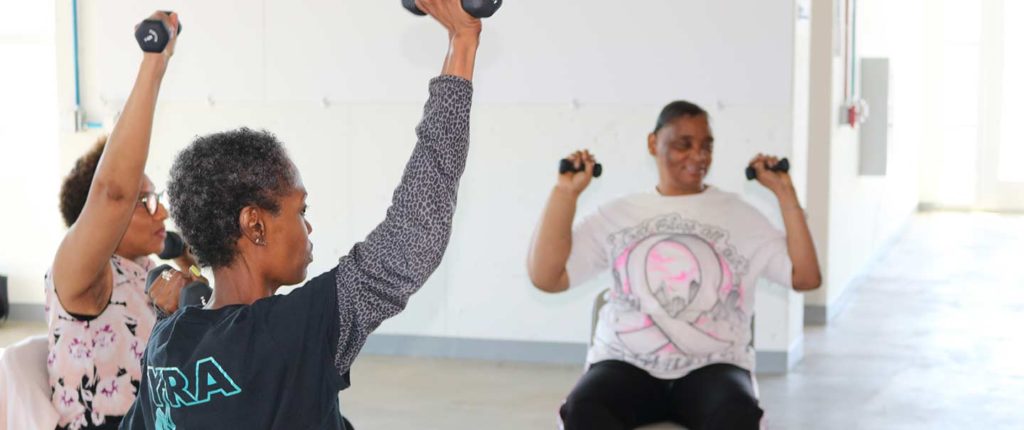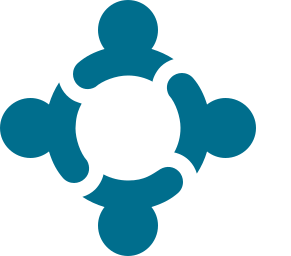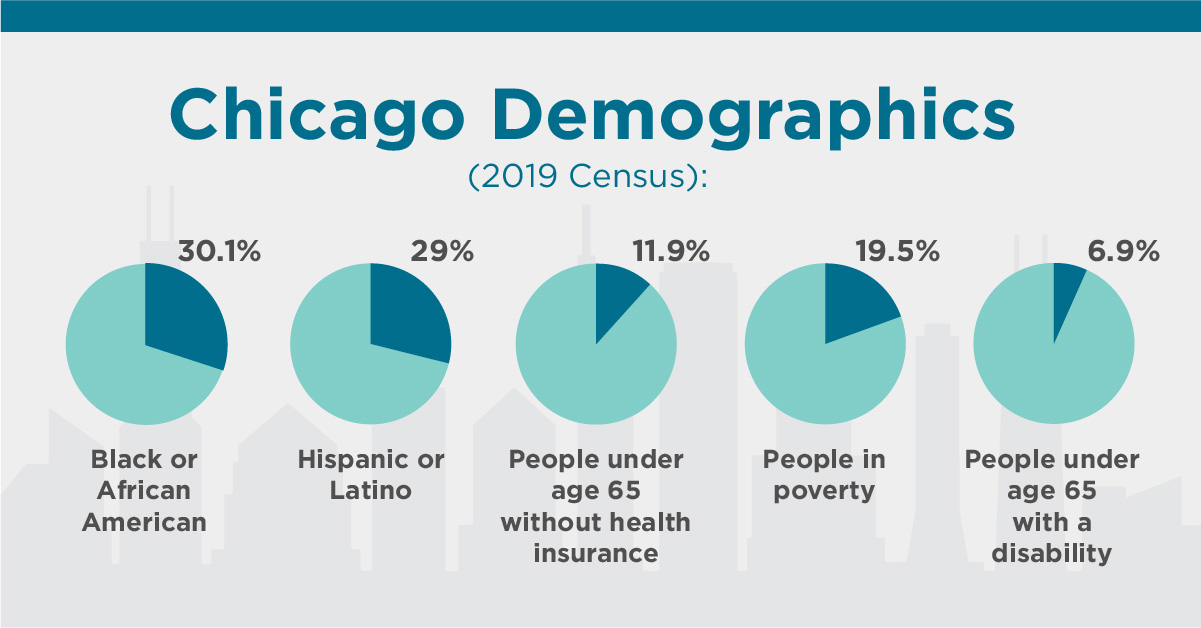
Cancer can affect anyone, regardless of age, race, income, and other factors. Yet it is a reality that certain groups of people experience higher rates of cancer and more deaths after diagnosis compared to others.
The University of Illinois Cancer Center is committed to creating health equity by addressing cancer disparities in our communities.
We provide resources and education to help people understand and address their cancer risk and receive needed cancer screenings. For those with a cancer diagnosis, we assist with treatment navigation, opportunities to participate in clinical trials, and programs that support their survivorship journey.
The diversity of our patients improves scientific understanding of how biology and societal factors contribute to an unequal cancer burden. Our researchers are unlocking the mysteries of cancer by integrating genetics, cellular science, and public health information to identify factors that influence the frequency and severity of disease.
Cancer Disparities in Chicago
- In 2018, only about 53% of Hispanic or Latino Chicagoans were screened for colorectal cancer per guidelines compared to 74% of white Chicagoans.
- From 2012 to 2016, the age-adjusted rate (a way to make fairer comparisons between groups with different age distributions) of prostate cancer new cases per 100,000 Black Chicagoans was 175.8 compared to 99.3 for white Chicagoans.
- In 2017, the age-adjusted rate of all cancer-related deaths per 100,000 population was 207.4 for Chicagoans in high economic hardship compared to 153.8 for Chicagoans in low economic hardship.
Sources: Chicago Health Atlas; Centers for Disease Control and Prevention
Making a Difference in the Community

Cancer disparities exist in part because lack of healthcare access and awareness. The University of Illinois Cancer Center, alongside partners Mile Square and UI Health, helps direct resources to historically underserved communities in Chicago.
Using community-informed and engaged research, the Cancer Center improves patient outcomes through community health navigation programs that provide education, spread awareness and increase healthcare access through:
- Screenings for breast, colorectal, cervical, and lung cancers — regardless of ability to pay
- Follow-up care and support services, such as exercise programs and support groups
- Smoking cessation programs
- Community events
- Town halls
- Think tanks
- Culturally competent health education materials
- Multi-media health communications
- Connections to cancer care and primary care
How does University of Illinois Cancer Center respond to the needs of individual underserved communities in Chicago?
For patients who are skeptical of the healthcare system, why should they still seek care at University of Illinois Cancer Center?
Introducing the Data Hub for Communities
The University of Illinois Cancer Center’s Data Hub for Communities is an interactive platform that allows you to explore and visualize data about the burden of cancer and its risk factors across multiple geographic levels within Illinois. Data are available to download as charts, maps, tables, and more.Explore the Data Hub
Take Action at the Cancer Center
Contact Us
To learn more about how University of Illinois Cancer Center addresses cancer disparities, contact us at cancerengagement@uic.edu.


